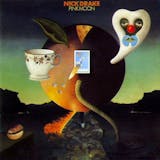Music and Emotional Health
Music has a profound impact on our emotional well-being. It can evoke a wide range of emotions, from happiness and excitement to sadness and nostalgia. Listening to music that resonates with our current emotional state can help us process and express our feelings. For example, listening to a melancholic song when feeling sad can provide a sense of catharsis and emotional release.
Music therapy, a clinical intervention that uses music to address emotional and psychological needs, has been shown to be effective in treating conditions such as depression, anxiety, and post-traumatic stress disorder (PTSD). By engaging in music-making activities, individuals can improve their emotional regulation, self-awareness, and social connections.
Music and Physical Health
The health benefits of music extend beyond the brain to the body. Research has demonstrated that music can reduce pain perception, lower blood pressure, and improve immune function. Listening to soothing music before and after surgery has been found to reduce the need for pain medication and accelerate recovery.
Music can also enhance physical performance. Upbeat and rhythmic music can boost motivation and endurance during exercise by distracting from fatigue and promoting a positive mood. This phenomenon, known as ergogenic effect, highlights the potential of music as a tool for improving physical fitness and overall health.
Music and Relationships
Music plays a significant role in social bonding and communication. Shared musical experiences, such as attending concerts or singing in a choir, can strengthen interpersonal connections and foster a sense of community. Music can also serve as a means of expressing love and affection, enhancing romantic relationships and family dynamics.
In therapeutic settings, music can facilitate communication and empathy, particularly for individuals with speech and language difficulties. Music therapy has been used to help children with autism develop social skills and improve their ability to connect with others.
Music and Stress Reduction
One of the most well-documented effects of music is its ability to reduce stress. Listening to calming music can lower cortisol levels, a hormone associated with stress, and activate the parasympathetic nervous system, which promotes relaxation and recovery. This stress-reducing effect is particularly beneficial in high-pressure environments, such as hospitals, workplaces, and schools.
Mindfulness-based music interventions, which combine music listening with mindfulness practices, have been shown to enhance relaxation, reduce anxiety, and improve emotional regulation. These interventions can be easily integrated into daily routines, providing a simple and accessible way to manage stress.


